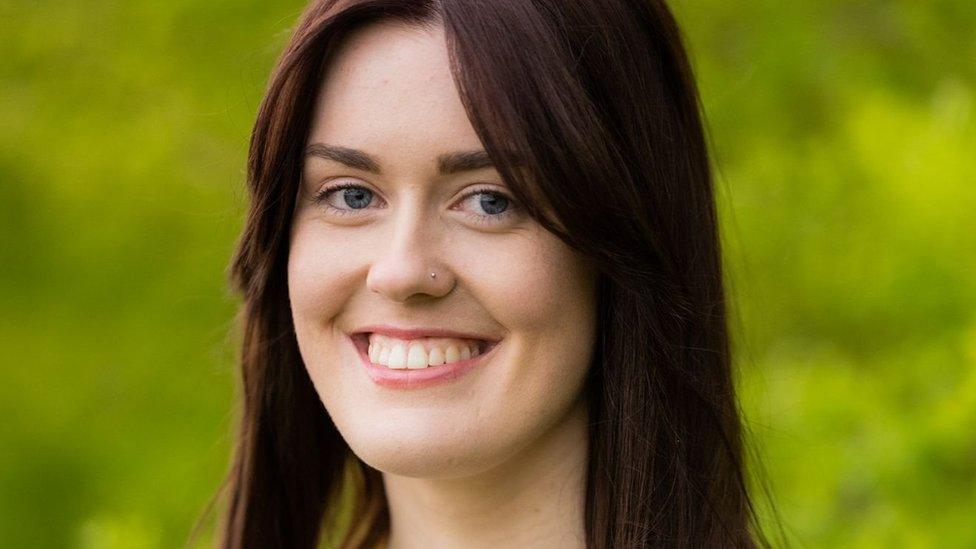New autism 'passport' to help people find work
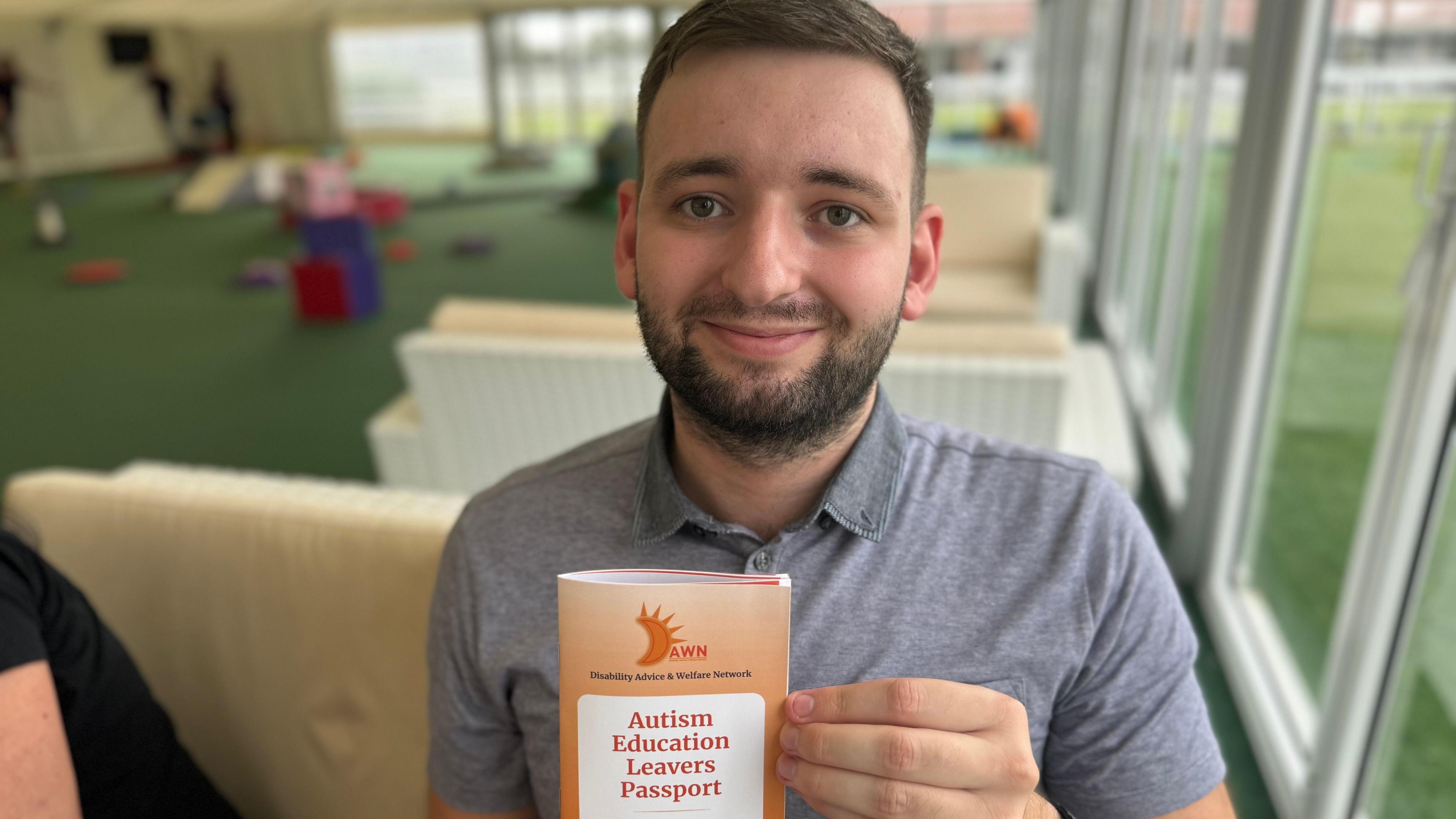
Luke Jackson was involved in creating the passport
- Published
A 'passport' designed to help young autistic people transitioning from education to work has been launched.
Disability Advice and Welfare Network (Dawn) hopes the booklet will help more neurodivergent education leavers find employment.
It was created in association with the Suffolk Law Centre, a legal charity based in Ipswich that estimates 70% of autistic adults are not working.
The 35-page Autism Education Leavers Passport contains advice on transitioning from school to higher education, benefits and job interviews.
'Fantastic resource'
It was created with the help of a group of autistic people.
Luke Jackson from Frinton-on-Sea, Essex, helped write a section about leaving university, drawing on his own experience of finding work after graduating from the University of Winchester with a degree in computer-aided design.
"I should've had this before I went to uni," the 25-year-old said at the passport's launch at Chelmsford City Racecourse on Tuesday.
He added: "I'm hoping that this will give people the knowledge that they don't have to be alone with trying to find a job in the future."
Dawn's patron Anna Kennedy said it is a "fantastic resource".
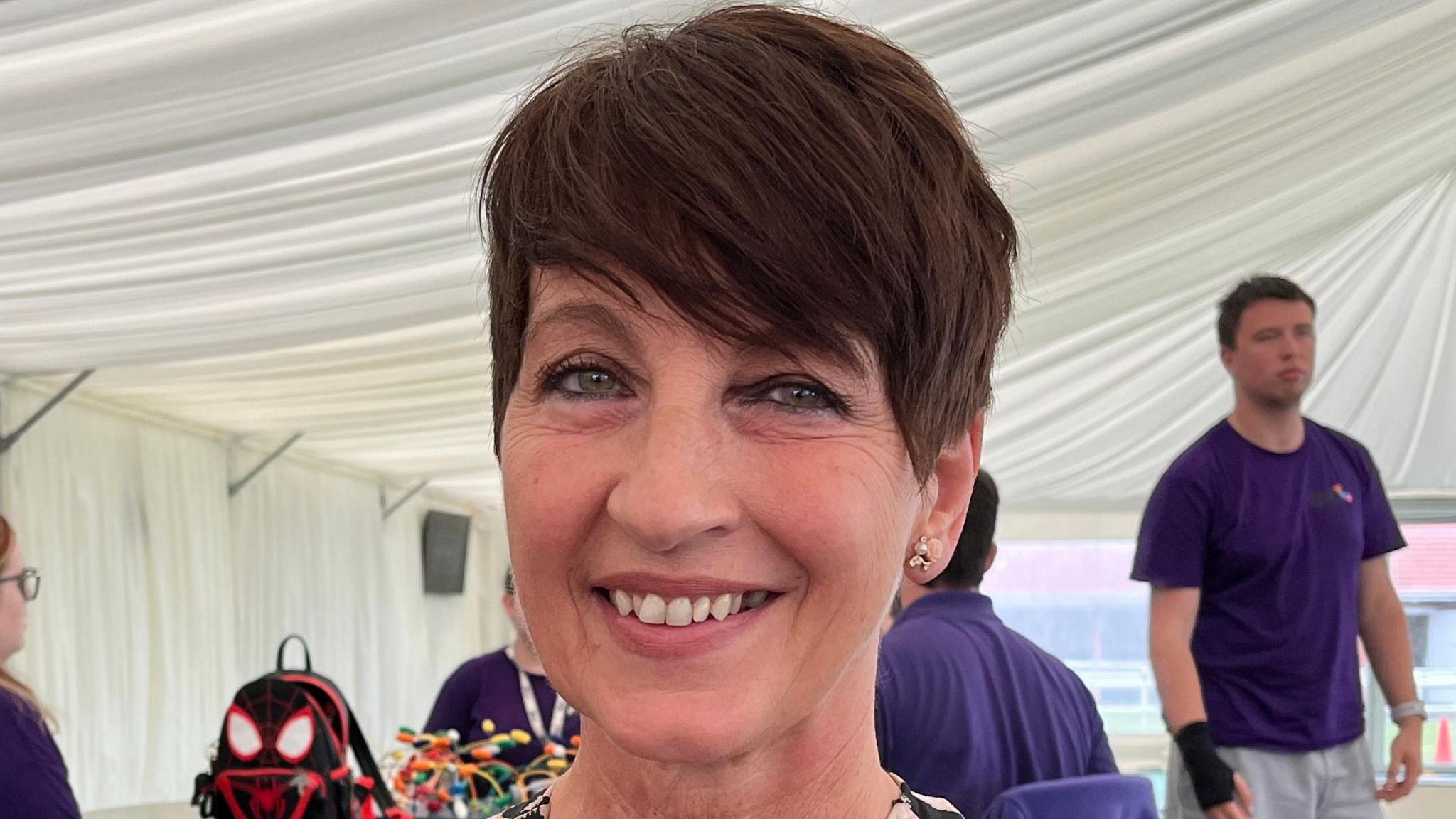
Anna Kennedy said she wished the passport was available when her son was younger
"I wish it was available when my eldest son who’s on the spectrum was younger," she said.
"There are a lot of autistic adults out there who are desperate for a job. They want to contribute to society like everybody else, and there are a lot of employers out there that are still not quite sure about autism."
Suffolk Law Centre wrote a section with information on reasonable adjustments employers should make when autistic people apply for a job.
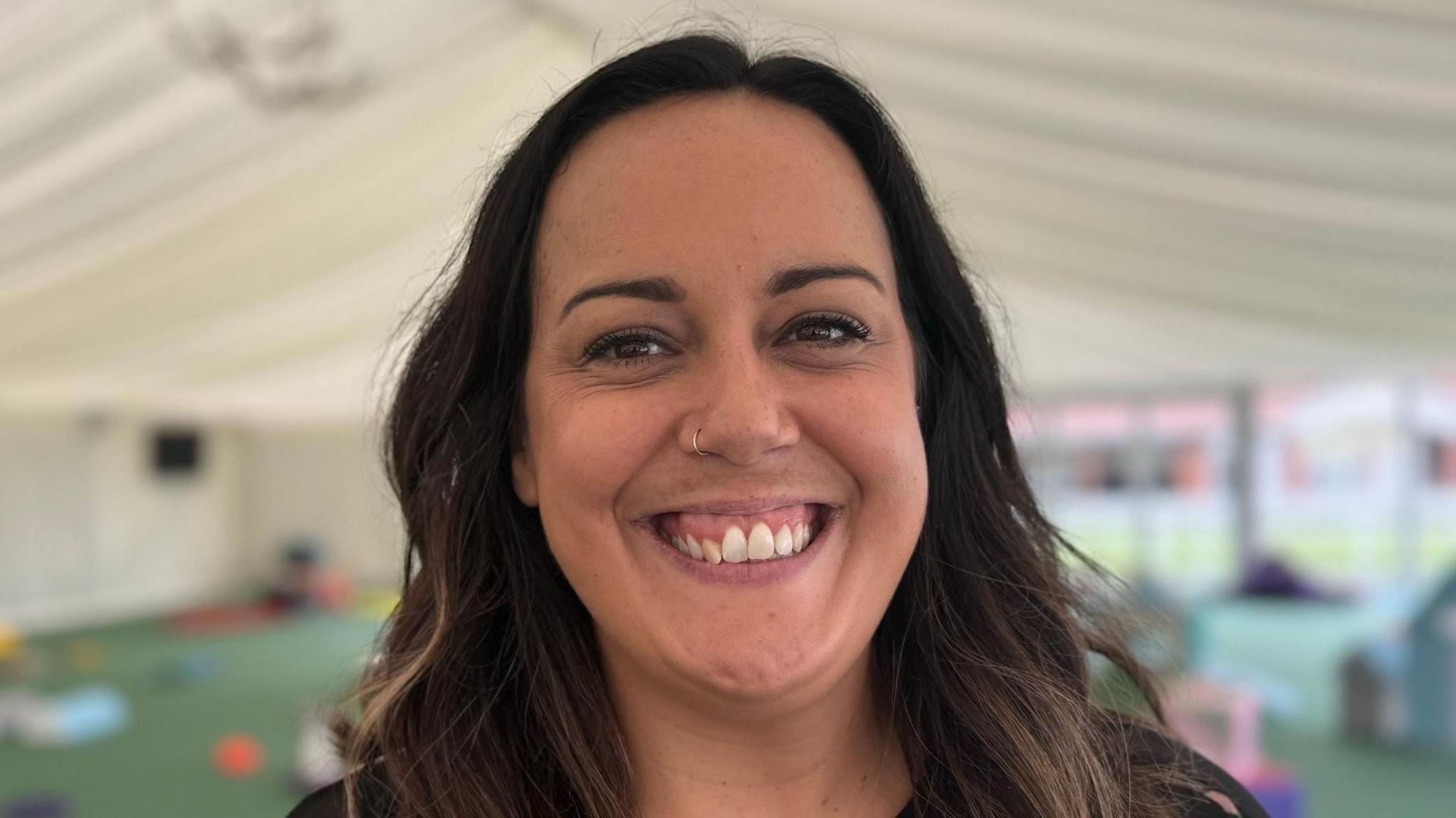
Jo Dunne trains employers on autism and was involved in the project
Jo Dunne, who trains employers on autism through her company PIC Training, was also involved in the project and said more should be done to tackle inequality.
"Very often, unfortunately people might have this view of a stereotypical autistic person when actually they just need to be a little more open-minded."
Dawn previously launched an autism passport, external to support people when visiting places like hospitals and GP surgeries.
The organisation is based in Colchester, Essex, and supports people across England and Wales.
Get in touch
Do you have a story suggestion for Essex?
Follow Essex news on BBC Sounds, Facebook, external, Instagram, external and X, external.
Related topics
Related stories
- Published31 July 2024
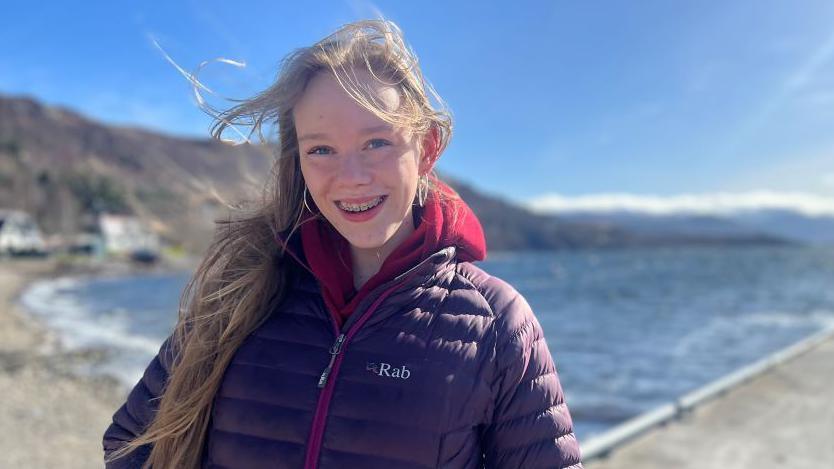
- Published31 March 2024
